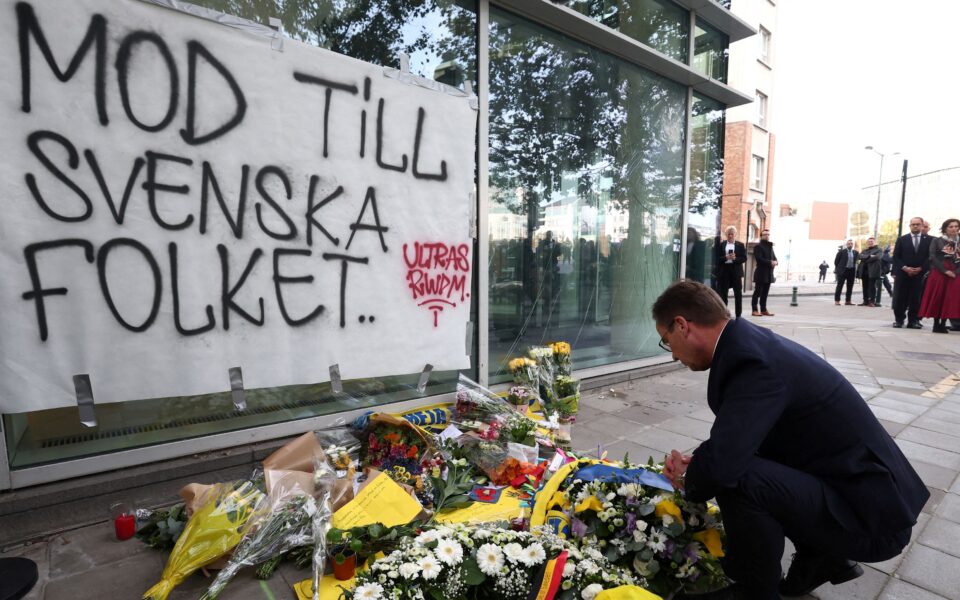EU ministers call for tougher immigration policies after Islamist attacks

Ministers from across the European Union said on Thursday that member states must screen migrants and asylum seekers better and expel those deemed a security risk more quickly, after Islamist attacks highlighted persistent difficulties.
Interior and justice ministers were meeting on Thursday in Brussels to discuss what steps to take following deadly attacks in Brussels and France, at a time of heightened security concerns linked to the Israel-Hamas conflict.
“It’s important that those individuals that could cause a security threat to our citizens be returned forcefully, immediately,” EU migration commissioner Ylva Johansson told reporters ahead of the meeting.
“We need to be more efficient, close the loopholes and be quicker on decisions to carry out returns.”
The 45-year-old Tunisian gunman who killed two Swedish football fans in the Belgian capital on Monday was staying there illegally after his asylum request had been denied.
He reached the EU via the Italian island of Lampedusa in 2011 and also lived in Sweden. He was shot dead by Belgian police.
The 20-year-old, Russian-born Islamist Ingush accused of stabbing to death a teacher in northern France on Friday was known before the attack to be a possible security risk but could not have been expelled under current legislation, France said.
“We realise there’s still a bit naivety either in the institutions of some countries or in the EU,” French Interior Minister Gerald Darmanin said as he arrived for the EU meeting, calling for the swift implementation of much-discussed EU migration rules, and for faster decisions on asylum requests.
Proponents of this looming overhaul of the EU’s migration policies – expected to be finalised this year – say it would improve the situation, including by facilitating quicker repatriations of foreigners with criminal records.
The attack in Brussels underlined persistent failings of the EU’s troubled migration and asylum systems, including security gaps and ineffective returns. Only about a fifth of people whose asylum cases fail in Europe are actually sent away.
Thursday’s meeting will also be the ministers’ first chance to exchange views in person since the Oct. 7 attack by Palestinian militant group Hamas that killed at least 1,400 Israelis, mostly civilians, and to which Israel has responded by bombarding Gaza.
The ministers are not expected to take any specific decisions but will discuss topics including what particular developments could cause Palestinians to flee in large numbers, or trigger violent acts inside the bloc.
There is also a new push for deals with African countries – including Egypt and Morocco – akin to the one the EU has sealed with Tunisia, offering aid in exchange for Tunis bringing down departures for Europe.
Critics of the EU’s new migration and asylum policies doubt they would be effective and point to growing risks to human rights while focus is on deterring unauthorised immigration.
The EU, a bloc of 450 million people, has recorded some 250,000 irregular arrivals this year, in large part aided by smugglers.
[Reuters]





